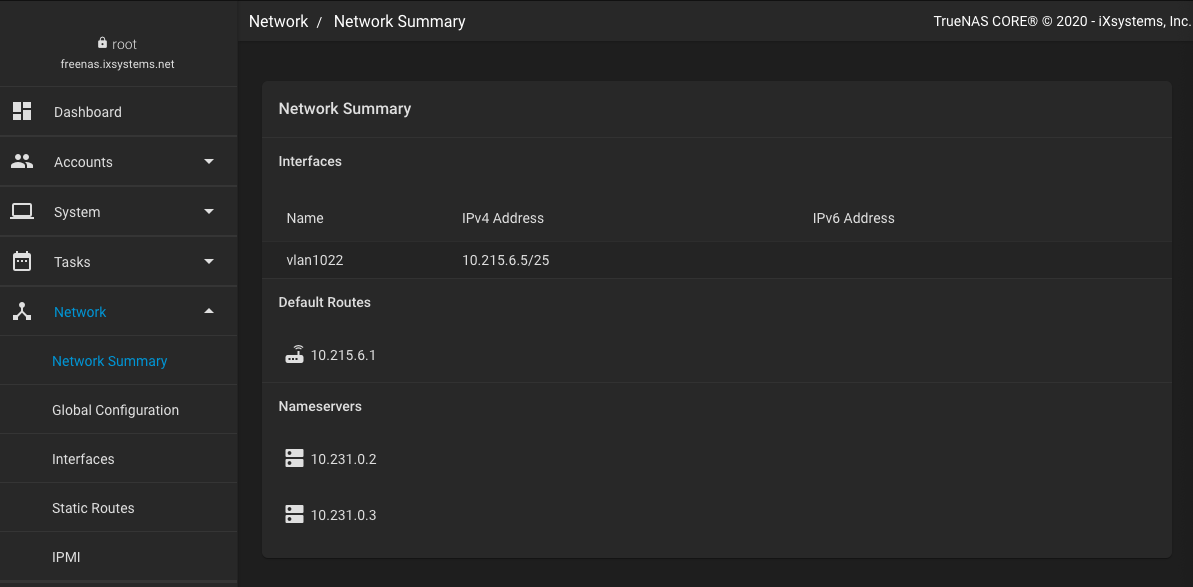TrueNAS CORE Version Documentation
This content follows the TrueNAS CORE 13.0 releases. Use the Product and Version selectors above to view content specific to different TrueNAS software or major version.
Network Summary
1 minute read.
We recommend setting up your system connections before setting up data sharing. This integrates TrueNAS into your specific security and network environment. Configure these settings before attempting to store or share critical data.
The Network Summary gives a concise overview of the current network setup. It provides information about the currently active Interfaces, Default Routes and Nameservers. These areas are not editable.

Interfaces shows any configured physical, bridge, LAGG, and vlan interfaces. All detected physical interfaces are listed, even when unconfigured. The IPv4 or IPv6 address displays when a Static IP is saved for an interface.
Default Routes lists all saved TrueNAS Default Routes. Go to Network > Global Configuration to configure Default Routes.
Nameservers lists any configured DNS name servers that TrueNAS uses. To change this list, go to Network > Global Configuration. Network > Global Configuration contains the TrueNAS Hostname and Domain and Default Gateway. It also contains other options.
Define any Static Routes in Network > Static Routes.
Out of Band Management is managed from Network > IPMI. This option is visible only when TrueNAS detects the appropriate physical hardware.



